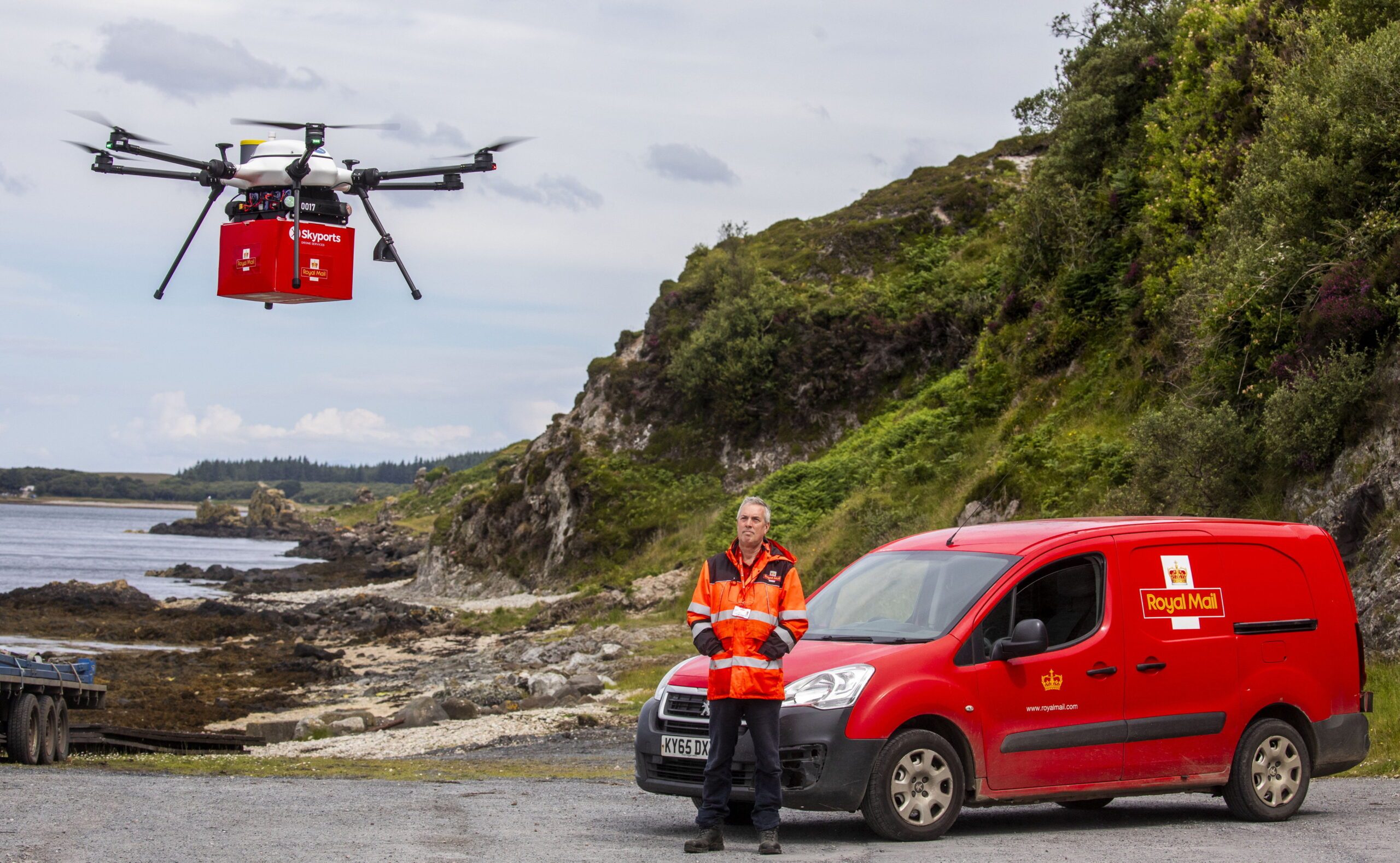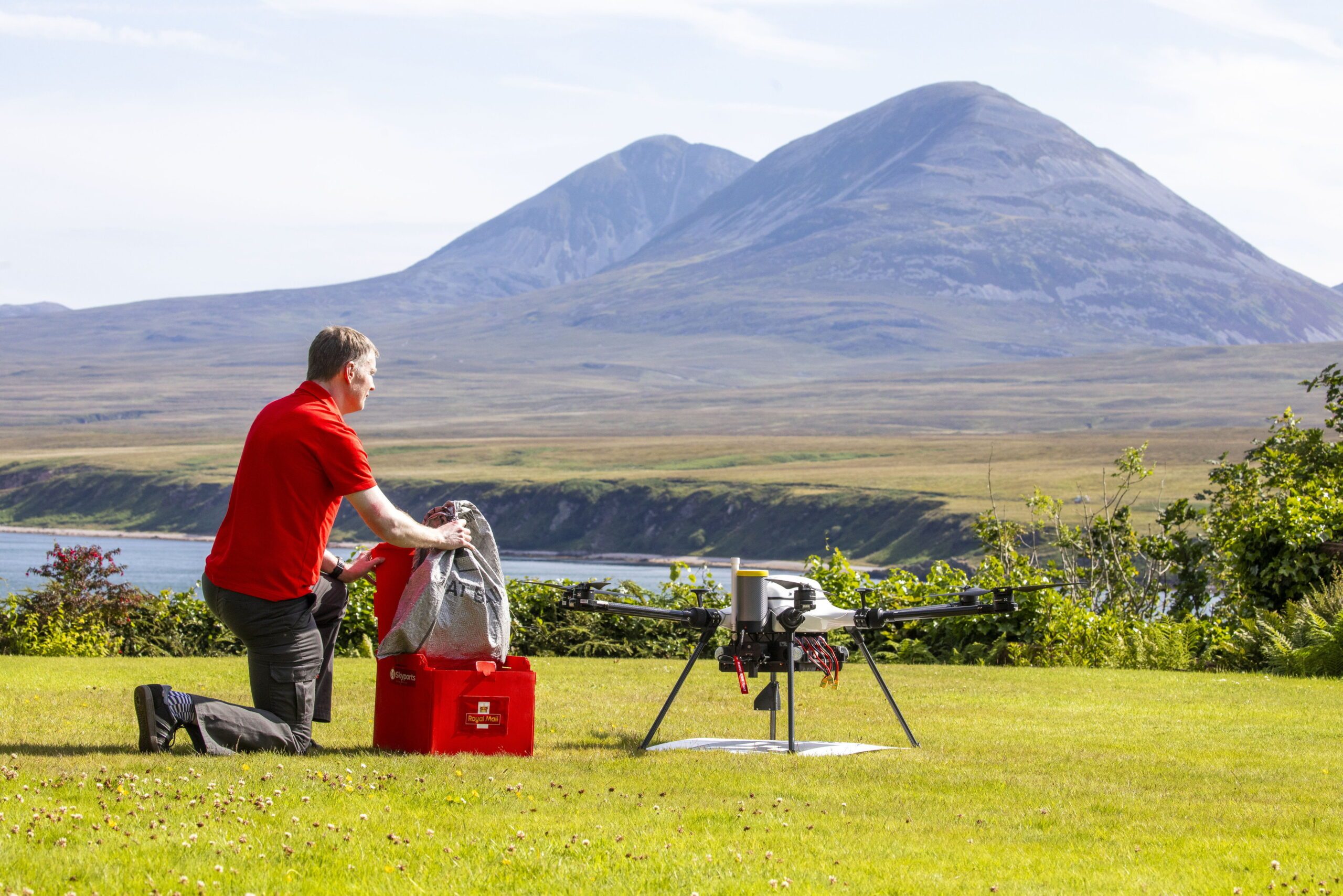Skyports and Royal Mail Extend Drone Delivery Service in Orkney
Rural Mail Distribution Project to Continue Until 2026 with Focus on New Technologies
Skyports Drone Services and Royal Mail have extended their drone delivery project in Orkney until at least February 2026. This project, which began one year ago, has become the UK’s longest-running commercial drone delivery service under existing regulatory frameworks.

 Continued Success in Rural Connectivity
Continued Success in Rural Connectivity
The Orkney I-Port project, an award-winning initiative, established a daily inter-island mail distribution service between Stromness on Orkney’s Mainland and the islands of Graemsay and Hoy. Since its inception, the project has proven the potential of drone operations to support critical public services like Royal Mail deliveries.
Skyports’ drone delivery project has enhanced connectivity and safety in the rural island region. The project explores how 5G technology can enable drone operations in remote areas, further improving service reliability.
Chris Paxton, USO Programme Manager at Royal Mail, emphasized the impact of the initiative: “Through our successful trial with Skyports, we are making our deliveries to remote communities quicker, more reliable and more environmentally friendly.”
Operational Enhancements and Future Plans
The project has completed 517 flights covering over 1,360 kilometers in various weather conditions. These operations have significantly improved mail delivery times for rural communities, shortening delivery times by up to 24 hours.


Royal Mail has launched its latest trial to deliver mail by drone, in collaboration with drone specialists Skyports and Argyll and Bute Council.
The drone flights are running between the remote isles of Islay and Jura in the Inner Hebrides for a month until 26 July, with postal workers loading and unloading mail on both sides for the first time.
The multirotor drone, which can carry payloads of up to 6kg, is the same one used in Royal Mail’s previous trial in Orkney. It will transport mail that is usually taken via ferry in a Royal Mail van.
As the project moves into its next phase, several key enhancements are planned. Skyports, in collaboration with drone manufacturer Speedbird, has upgraded drone hardware and software. These updates will allow flights in higher winds and more adverse weather, preparing for the challenges of winter operations.
Additionally, the relocation of the touchdown and lift-off area (TLOF) to the Royal Mail delivery office in Stromness will streamline operations and further reduce delivery times. Remote pilots at Skyports’ Remote Operations Centre near Aylesbury now control the drones, reducing the need for on-site staff in Orkney.
Royal Mail staff have also been trained to manage tasks related to the receipt and dispatch of mail delivery drones. This training supports more agile operations and reduces personnel demand.
Community and Industry Support
The project, part of the UK Space Agency-funded Connectivity for Remote Orkney Future Transport (CROFT) initiative, has gained strong support from local stakeholders. Orkney Islands Council Harbour Authority and Loganair have played crucial roles in improving service levels for the region’s rural communities.
Councillor Kristopher Leask expressed his enthusiasm for the extension: “The now proven operational ability of drone delivery technology for our postal service has shown how island communities can benefit from innovation.”
Skyports’ Director, Alex Brown, highlighted the broader implications of the project: “This project also shines a spotlight on the work we do beyond flying. To secure the strong growth trajectory we believe drones can achieve, we’re working hard to support the development of an enabling ecosystem for drone services.”
Looking Ahead
Skyports and Royal Mail’s collaboration in Orkney is an example of how emerging technologies can enhance essential services. The ongoing project will continue to explore how innovations like 5G can further support drone operations in challenging rural environments, potentially serving as a model for similar projects in the future.
Read more:
Miriam McNabb is the Editor-in-Chief of DRONELIFE and CEO of JobForDrones, a professional drone services marketplace, and a fascinated observer of the emerging drone industry and the regulatory environment for drones. Miriam has penned over 3,000 articles focused on the commercial drone space and is an international speaker and recognized figure in the industry. Miriam has a degree from the University of Chicago and over 20 years of experience in high tech sales and marketing for new technologies.
For drone industry consulting or writing, Email Miriam.
TWITTER:@spaldingbarker
Subscribe to DroneLife here.



